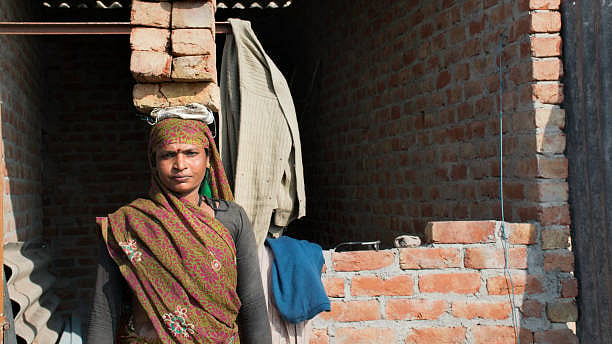Nation
94% women construction workers don't raise voice against air pollution for fear of job loss: Study
94% women construction workers, as part of a study conducted in Delhi, never raised their voice or took any steps to prevent the negative impact of air pollution due to the fear of losing their jobs

Ninety-four percent women construction workers, surveyed as part of a study conducted in Delhi, never raised their voice or took any steps to prevent the negative impact of air pollution due to the fear of losing their jobs.
Purpose India and Mahila Housing Trust (MHT) jointly executed a project with women construction workers from Bakkarwala, Gokulpuri and Sawda Ghevra in Delhi from August 2021 to April 2022 to mobilize and enable them to understand the impact of air pollution on them and their children's health and, by doing so, build knowledge and pressure among local governments to support policy and action.
A baseline study was conducted among 390 women construction workers to understand their priorities and issues in their lives, and articulate the impact of air pollution on this group.
Published: undefined
The sample households were characterized by respondents majorly in the age groups 36 years and above, mostly illiterate or low educational levels, predominance of Scheduled castes, followed by OBC and a majority (87 percent) were married.
Around 85 percent of the women agreed that air pollution has a negative impact on human health, 75 percent reported that they feel sick or uncomfortable when the air quality is bad, it said.
More than three-fourths of the respondents believed that working at construction sites is harmful for their health.
The study said 76 percent of women were aware of the problem of air pollution, the source of information being television (61 percent), peer group (41 percent) and school going children/ family members (45 percent).
All the participants were ignorant about the terms PM 2.5, PM 10 and air quality index, it said.
Published: undefined
"Ninety-four percent women never raised their voice or took any steps to prevent the negative impact of air pollution due to the fear of losing their jobs," it claimed.
Some also felt that preventing air pollution at construction sites is the sole responsibility of the contractors and they themselves are not liable for it, it said.
Only six percent women took steps to prevent the negative effects of air pollution (using masks, dupatta to cover their face, wore full sleeved clothes; tried to raise concerns relating to air pollution at construction sites, sprinkled water on debris, etc.).
Ninety percent of the participants opined that the government should improve public transport so that better off sections of society do not use vehicles to commute for work, it said.
Published: undefined
Follow us on: Facebook, Twitter, Google News, Instagram
Join our official telegram channel (@nationalherald) and stay updated with the latest headlines
Published: undefined